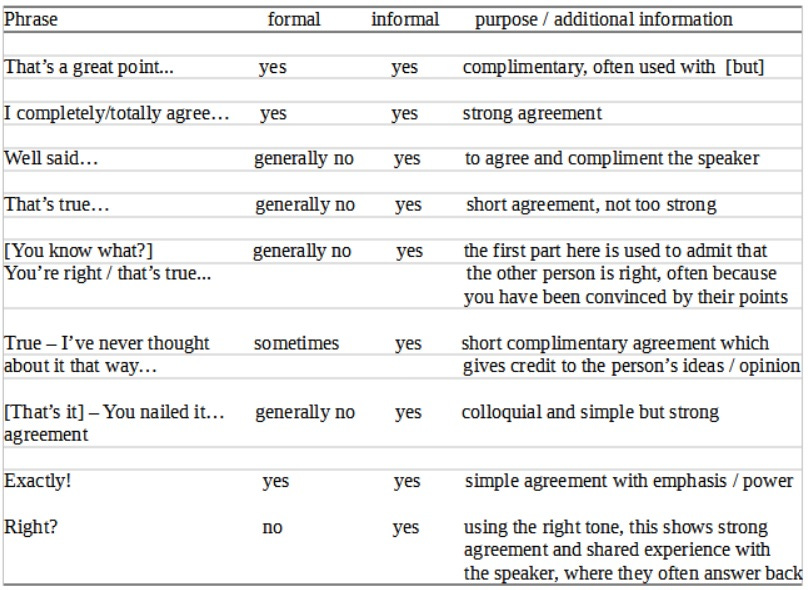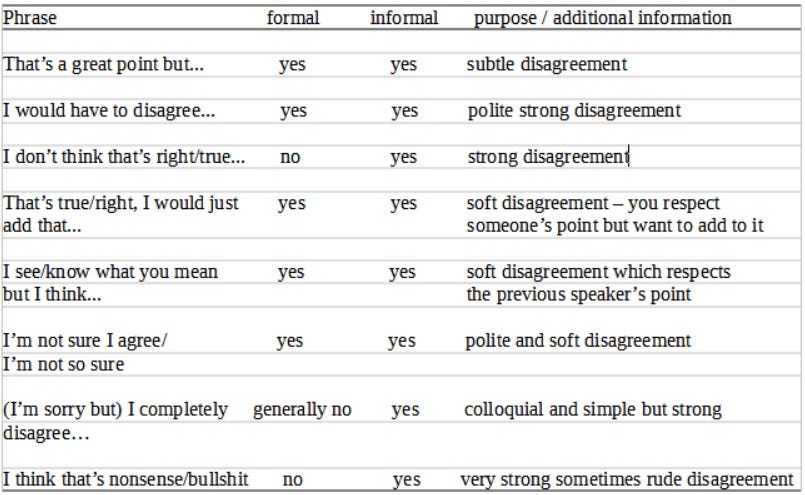Functional Language: Agreeing and Disagreeing
Following my first post about expressing your opinion, this one aims to discuss the common language English people use to agree and disagree.
Agreement
People like it when you agree with them — this much is obvious. What’s important however, is how you make that agreement apparent in both formal and informal contexts. Initial agreement can also serve as a useful tool to then express where you might disagree too, as having now acknowledged that someone made a good point, you are free to make counter points. This is why some of the below phrases aim to compliment someone before using “but” or “however”, followed by an opinion which disagrees with your conversation partner. There’s a common saying in English that “everything before the word ‘but’ is bullshit” — this is somewhat true, however, competent English speakers and natives alike continue to use these types of sentences when disagreeing, as they show respect to the other person’s views or opinion. As usual with the below table, the phrases in closed brackets i.e. “[ ]” are optional – they do not need to be used.
Disagreement

Disagreeing well is a delicate art, and you must be especially careful with people in certain situations – especially when topics such as politics, music or religion are involved. Often, in today’s world, people simply avoid disagreement entirely – purely because of the drama and conflict it can create. However, I would argue that disagreement is an essential component of conversation and discussions in general, as it is only through disagreement and occasionally argument that the best ideas and work are produced. Culturally, strong and direct disagreement may be inappropriate in formal or business situations, which you will see reflected below.
Above all else, I would say that tone is important. It is sometimes fine to strongly disagree with people even in formal or business situations, as long as you are respectful and professional. While it is usually in social situations that English people use stronger language to express their disagreement, having strong arguments to back up your disagreement may change someone’s opinion in the end, but only if you show that person or people enough respect.
I hope you enjoyed this new edition of Enlightened English! I have been away for some time and will be posting more moving forward. Subscribe for more newsletters – next time we will be taking a look at neutral responses and how to move a discussion forward.


